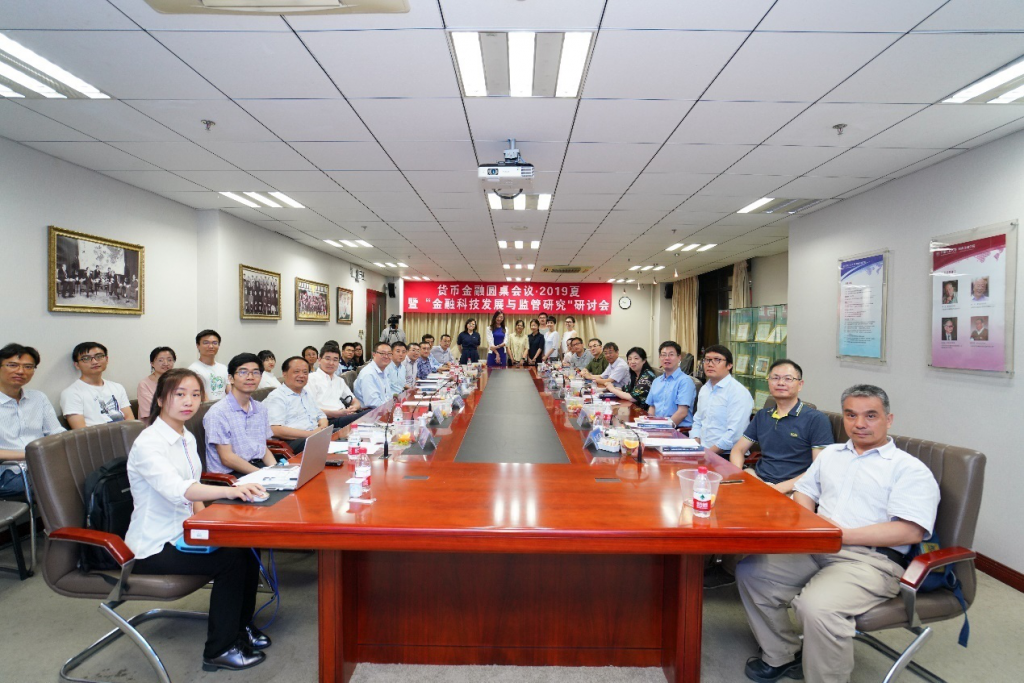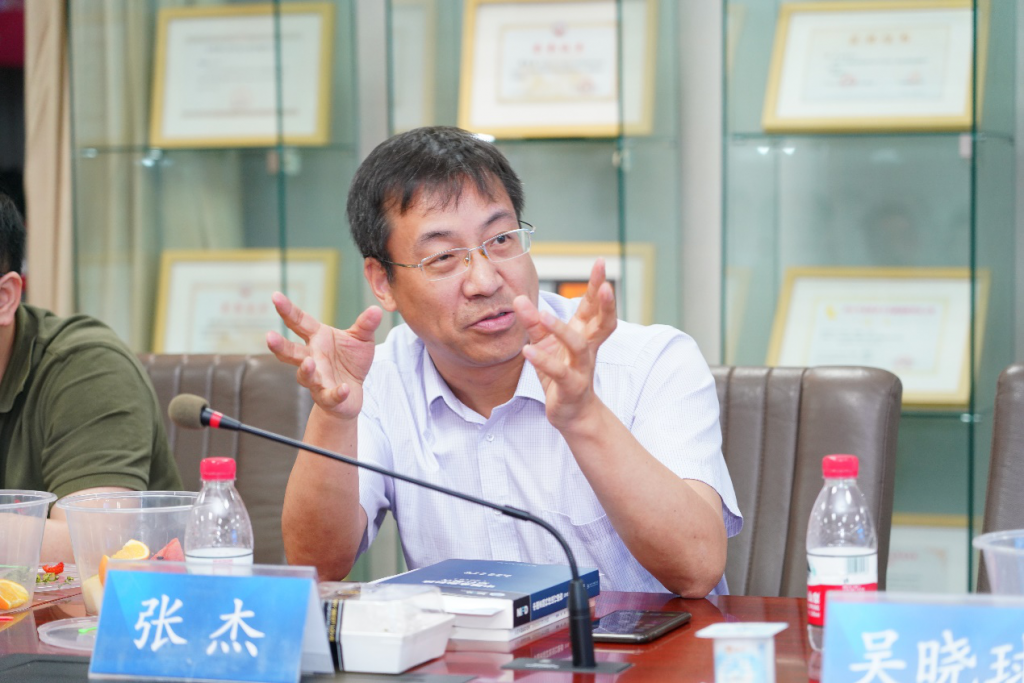Roundtable on Money and Finance·Summer 2019 and Seminar on Fintech Development and Supervision
2019-07-15 IMI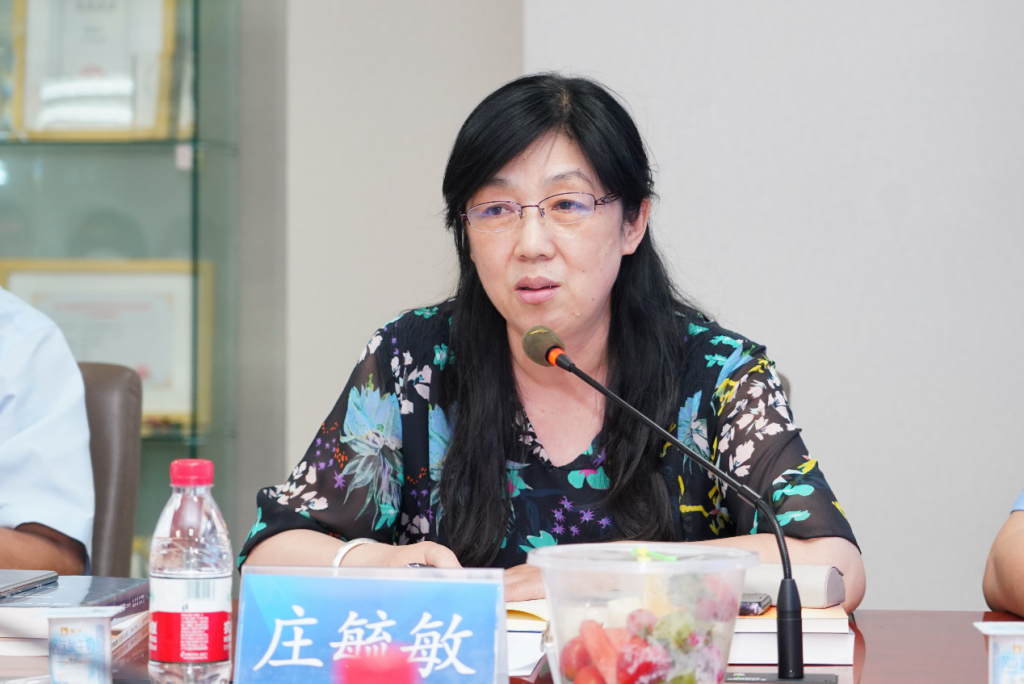 Wu Xiaoqiu, vice president of Renmin University, Mu Changchun, deputy director of the Department of Payment and Settlement of PBoC, Ye Mao, professor of the Department of Finance at the University of Illinois at Urbana-Champaign, and Yang Tao, assistant director of the Institute of Finance of the Chinese Academy of Social Sciences, delivered keynote speeches successively. Zhuang Yumin, Dean of School of Finance and of Renmin University, made an opening remark. The meeting was presided over by Zhao Xijun, associate dean of the School of Finance of Renmin University.
Wu Xiaoqiu, vice president of Renmin University, Mu Changchun, deputy director of the Department of Payment and Settlement of PBoC, Ye Mao, professor of the Department of Finance at the University of Illinois at Urbana-Champaign, and Yang Tao, assistant director of the Institute of Finance of the Chinese Academy of Social Sciences, delivered keynote speeches successively. Zhuang Yumin, Dean of School of Finance and of Renmin University, made an opening remark. The meeting was presided over by Zhao Xijun, associate dean of the School of Finance of Renmin University.
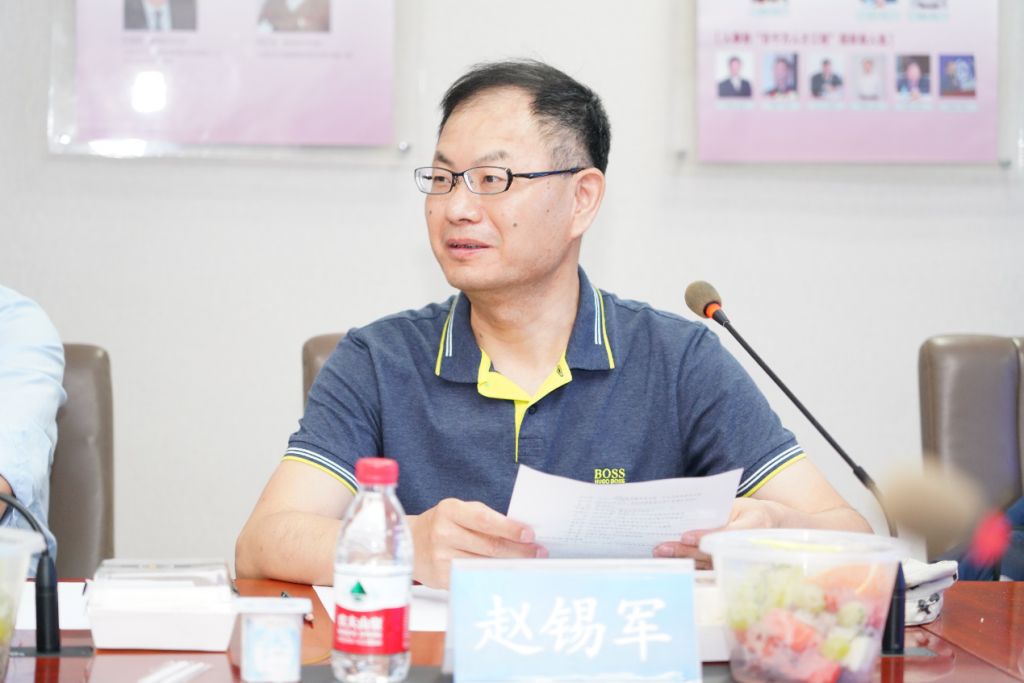 Wu Xiaoqiu delivered a speech on "How to Promote Financial Supply-side Reform". He explained the requirements of fintech development and supervision from the perspective of promoting financial supply-side reform. He pointed out that the cornerstone of China's financial reform is the capital market. The increase in per capita income demands the diversity of financing instruments, the increase in wealth management requires the diversity of financial assets, and the strong penetration of fintech has promoted the financial reform represented by new forms of payment. The three have provided the foundation and impetus for vigorously developing the capital market and promoting the marketization of the financial system. At present, the degree of financial marketization in China is insufficient, and the current regulatory standards are tolerant of financial innovation. Therefore, financial technology, especially third-party payment models of Internet finance, can have a revolutionary impact on the payment format of traditional Chinese finance. As an important aspect of China's financial supply-side structural reform, the development of the capital market needs to emphasize the interests of investors, make it transparent and market-oriented, give play to the role of supervision by public opinion, and set up punishment rules for false disclosure, fraudulent listing and other acts. These are the responsibilities of the registration system and Science and Technology Innovation Board.
Wu Xiaoqiu delivered a speech on "How to Promote Financial Supply-side Reform". He explained the requirements of fintech development and supervision from the perspective of promoting financial supply-side reform. He pointed out that the cornerstone of China's financial reform is the capital market. The increase in per capita income demands the diversity of financing instruments, the increase in wealth management requires the diversity of financial assets, and the strong penetration of fintech has promoted the financial reform represented by new forms of payment. The three have provided the foundation and impetus for vigorously developing the capital market and promoting the marketization of the financial system. At present, the degree of financial marketization in China is insufficient, and the current regulatory standards are tolerant of financial innovation. Therefore, financial technology, especially third-party payment models of Internet finance, can have a revolutionary impact on the payment format of traditional Chinese finance. As an important aspect of China's financial supply-side structural reform, the development of the capital market needs to emphasize the interests of investors, make it transparent and market-oriented, give play to the role of supervision by public opinion, and set up punishment rules for false disclosure, fraudulent listing and other acts. These are the responsibilities of the registration system and Science and Technology Innovation Board.
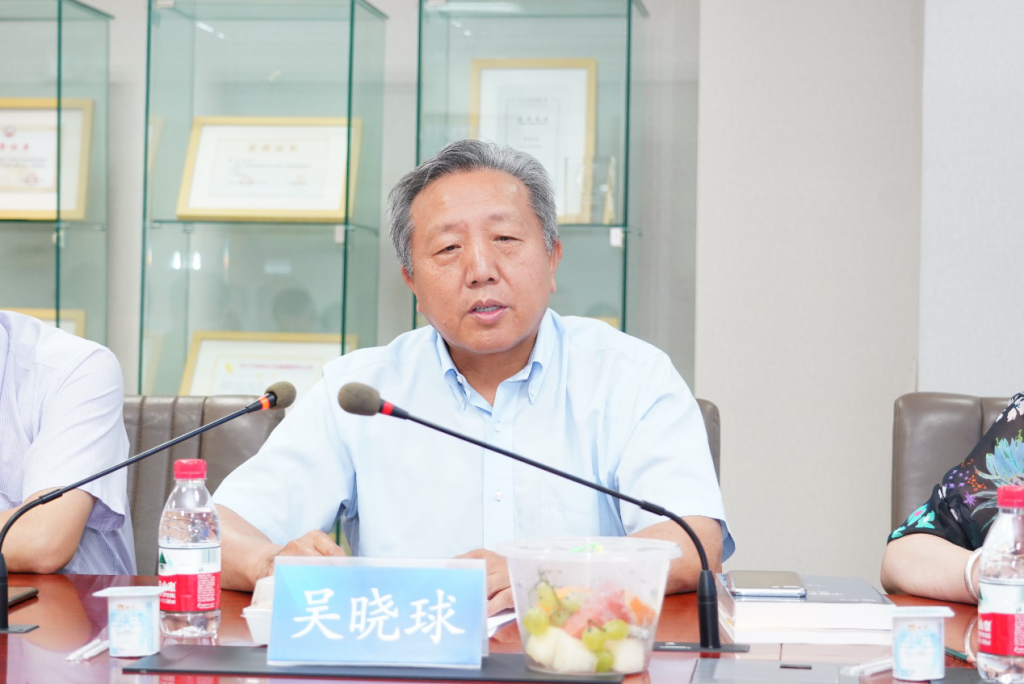 Mu Changchun delivered a speech on the topic of “Lighthouse and the NetsUnion”. Starting from the "lighthouse theory" of public goods supply, he talked about the development of the payment clearing system before central banks emerged. Reducing costs and improving efficiency are important factors for the development of unified payment systems. Payment services for public goods can be provided by the private sector, with the premise that the private sector has a spirit of working for the public and acts in compliance in rules. A completely free market is difficult to produce an efficient and low-cost payment system, so it requires the central bank to establish a unified payment settlement system. On the other hand, unified payment can help the central bank to implement monetary policies, and also serve the macroprudential management framework. He pointed out that NetsUnion Clearing Corporation is a unified clearing system established by non-bank payment institutions under the principle of “joint set-up, ownership and sharing”. The central bank's digital currency, now dominated by the People's Bank of China, is also being developed through a two-tier operating system.
Mu Changchun delivered a speech on the topic of “Lighthouse and the NetsUnion”. Starting from the "lighthouse theory" of public goods supply, he talked about the development of the payment clearing system before central banks emerged. Reducing costs and improving efficiency are important factors for the development of unified payment systems. Payment services for public goods can be provided by the private sector, with the premise that the private sector has a spirit of working for the public and acts in compliance in rules. A completely free market is difficult to produce an efficient and low-cost payment system, so it requires the central bank to establish a unified payment settlement system. On the other hand, unified payment can help the central bank to implement monetary policies, and also serve the macroprudential management framework. He pointed out that NetsUnion Clearing Corporation is a unified clearing system established by non-bank payment institutions under the principle of “joint set-up, ownership and sharing”. The central bank's digital currency, now dominated by the People's Bank of China, is also being developed through a two-tier operating system.
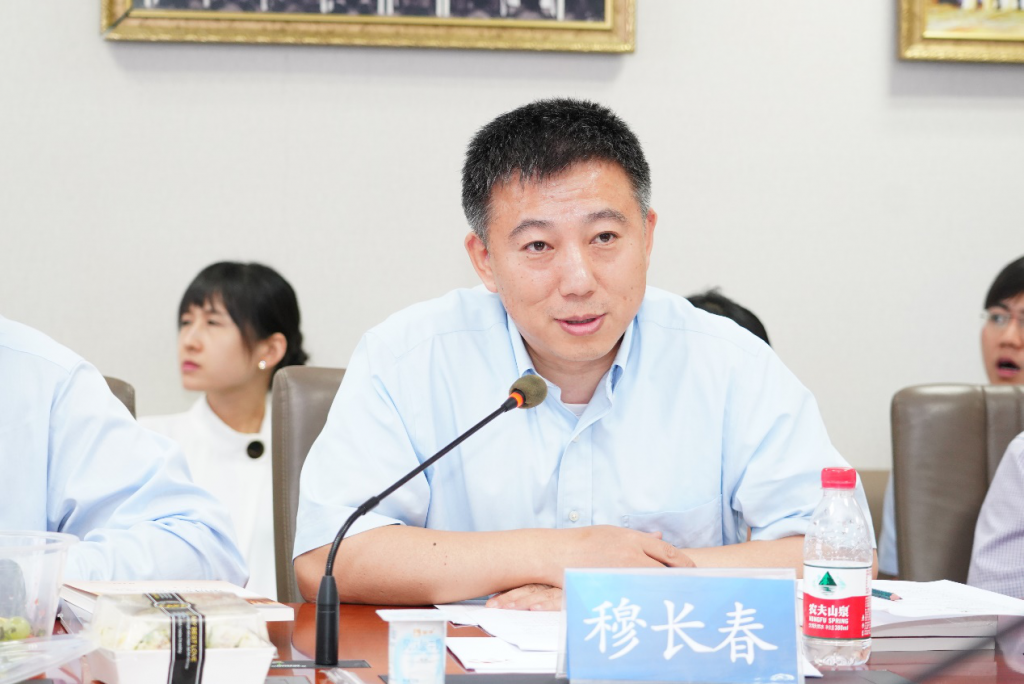 Ye Mao delivered a speech on the topic of "Challenges of Financial Regulation in the US". He pointed out four major challenges on the regulation of US financial markets from four perspectives: regulatory targets, regulatory intensity, regulatory changes and regulators' positions. He believes that with the development of science and technology, there are some new facts in the trading field. In order to cope with this change, regulation should be based on the behaviors of human and machine. Many innovations are the result of regulation, and technology has increased the speed of competition, which has changed the previous profit model. Therefore, the regulatory authorities need to change the supervision in a timely manner. In addition, he pointed out that because the current regulatory rules are quite complex, when discussing a policy, it is necessary to consider whether the new policy conflicts with the old one. He said that in the United States, due to the different positions of regulators, sometimes there will be conflicts between the regulatory authorities, which has a strong American characteristic.
Ye Mao delivered a speech on the topic of "Challenges of Financial Regulation in the US". He pointed out four major challenges on the regulation of US financial markets from four perspectives: regulatory targets, regulatory intensity, regulatory changes and regulators' positions. He believes that with the development of science and technology, there are some new facts in the trading field. In order to cope with this change, regulation should be based on the behaviors of human and machine. Many innovations are the result of regulation, and technology has increased the speed of competition, which has changed the previous profit model. Therefore, the regulatory authorities need to change the supervision in a timely manner. In addition, he pointed out that because the current regulatory rules are quite complex, when discussing a policy, it is necessary to consider whether the new policy conflicts with the old one. He said that in the United States, due to the different positions of regulators, sometimes there will be conflicts between the regulatory authorities, which has a strong American characteristic.
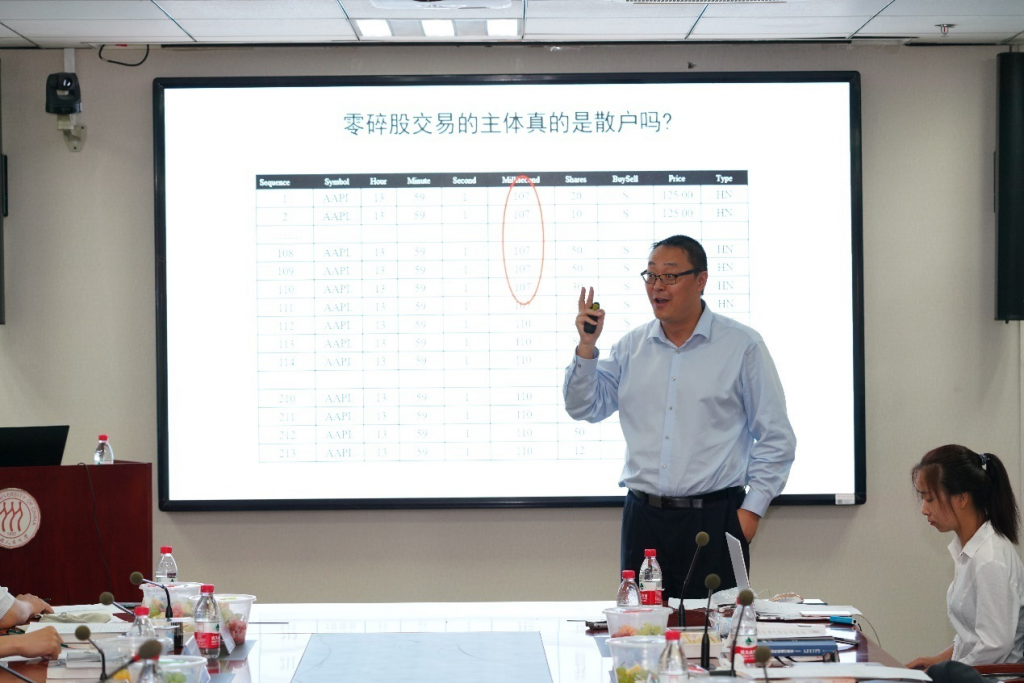 Professor Yang Tao delivered a keynote speech on the topic of “Banks’ Digital Transformation and Supervision”. He pointed out that the reform of financial technology is, in the final analysis, the entire economic society gradually transforming into a digital world. How to evaluate the digital transformation from a neutral perspective is the key. Affected by the economic cycle, financial cycle, bank's own cycle, technological cycle, and the superposition of the regulatory cycle, banks will become an important subject of transformation in the entire financial industry. Major changes in the financial industry cannot leave without regulation and constraints. Supervision should consider the characteristics of risks brought about by new technologies and how to use new technologies to cope with risks. At the same time, the application of regulatory sandboxes in China should clarify its connotation, reform and guarantee. Finally, he pointed out that how to effectively interact with the industry and better study the future boundary will become a key point that directly affects fintech innovation.
Professor Yang Tao delivered a keynote speech on the topic of “Banks’ Digital Transformation and Supervision”. He pointed out that the reform of financial technology is, in the final analysis, the entire economic society gradually transforming into a digital world. How to evaluate the digital transformation from a neutral perspective is the key. Affected by the economic cycle, financial cycle, bank's own cycle, technological cycle, and the superposition of the regulatory cycle, banks will become an important subject of transformation in the entire financial industry. Major changes in the financial industry cannot leave without regulation and constraints. Supervision should consider the characteristics of risks brought about by new technologies and how to use new technologies to cope with risks. At the same time, the application of regulatory sandboxes in China should clarify its connotation, reform and guarantee. Finally, he pointed out that how to effectively interact with the industry and better study the future boundary will become a key point that directly affects fintech innovation.
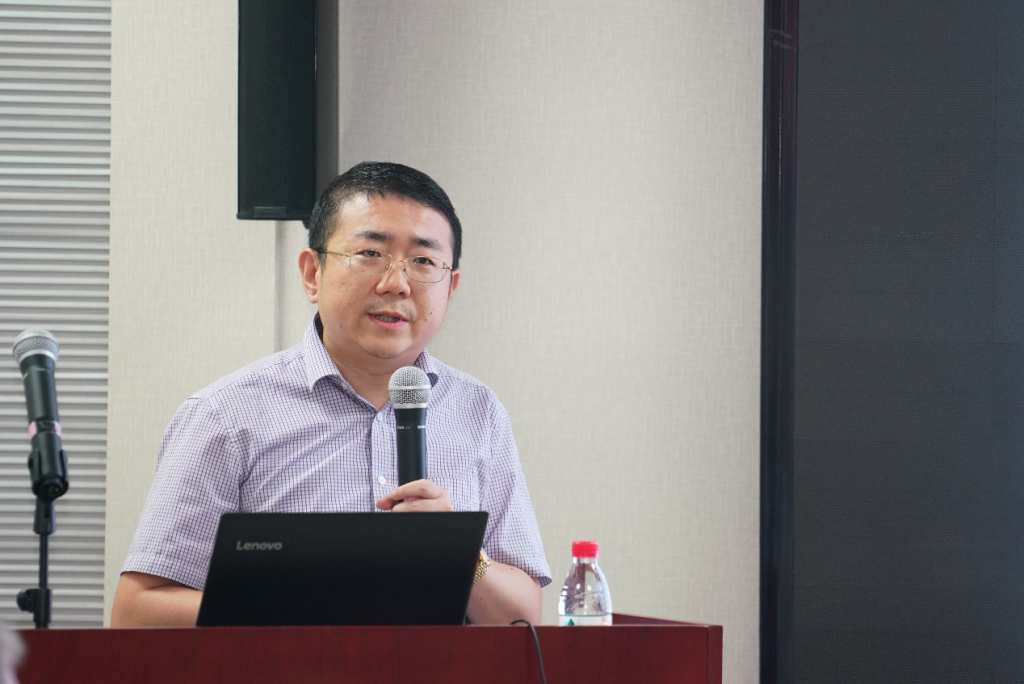 In the roundtable discussion, Liu Qingsong, Dean of China Institute of Finance and Capital Market, CSRC, Wang He, former Executive Vice President of PICC Property and Casualty Co., Ltd. Tan Songtao, Associate Dean of School of Finance, RUC, Ma Jun, Professor of Northeastern University, Zhang Zhaoyang, Vice President of Government Affairs of Visa China and Chief Representative of Beijing Representative Office, Ma Hongjie, Deputy Secretary General of ITSS (Information Technology Service Standards) Branch, Zhou Yonglin from Financial Market Department of Industrial and Commercial Bank of China, Zhang Jie, Director of IMI, Song Ke, Deputy Director of IMI, and IMI researchers Du Xiaoyu, Gang Jianhua, Luo Wei, Xiu Jing, Zhen Xinwei and other experts and scholars from the financial supervision department, theoretical and business community participated in the seminar and offered their wonderful views.
In the roundtable discussion, Liu Qingsong, Dean of China Institute of Finance and Capital Market, CSRC, Wang He, former Executive Vice President of PICC Property and Casualty Co., Ltd. Tan Songtao, Associate Dean of School of Finance, RUC, Ma Jun, Professor of Northeastern University, Zhang Zhaoyang, Vice President of Government Affairs of Visa China and Chief Representative of Beijing Representative Office, Ma Hongjie, Deputy Secretary General of ITSS (Information Technology Service Standards) Branch, Zhou Yonglin from Financial Market Department of Industrial and Commercial Bank of China, Zhang Jie, Director of IMI, Song Ke, Deputy Director of IMI, and IMI researchers Du Xiaoyu, Gang Jianhua, Luo Wei, Xiu Jing, Zhen Xinwei and other experts and scholars from the financial supervision department, theoretical and business community participated in the seminar and offered their wonderful views.
